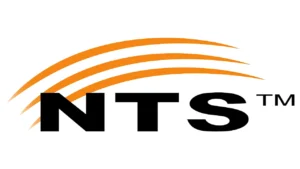The Pakistan Security Standard for Cryptographic and IT Security Devices defines strict protocols, evaluation methods, timelines, and fee structures to ensure that cryptographic systems, IT security products, and secure applications meet the highest cybersecurity benchmarks. This standard is designed to protect sensitive data handled by government bodies, defense organizations, and critical institutions.
Evaluation Requirements and Timelines
For IT security products, a surface-level evaluation requires submission of specifications, third-party certifications, and technical documents. This process is completed in 15 working days at a fee of Rs 0.2 million.
A detailed review of products using standard algorithms takes around 30 working days, costing Rs 0.5 million. However, if the product involves proprietary algorithms, the timeline extends up to three months with a fee of Rs 1 million.
For cryptographic algorithms, especially proprietary ones, evaluations involve in-depth analysis of source code, mathematical modeling, and cryptanalysis. This can take one to three months with charges of Rs 1 million.
For cryptographic devices based on proprietary algorithms, the evaluation process requires device manuals, technical details, and key management systems. It usually spans three to six months with a fee of Rs 1.5 million.
When it comes to secure software applications, a surface evaluation (with or without feature validation) costs Rs 0.1 to 0.3 million and takes up to 30 working days. More detailed evaluations that involve algorithm analysis and source code inspection take 15 to 30 working days with a fee of Rs 0.5 million. Customized evaluations are handled on a case-by-case basis.
The framework also clarifies that evaluation charges may rise if multiple algorithms or additional security features need to be tested.
Scope and Coverage of the Standard
The Pakistan Security Standard for Cryptographic and IT Security Devices applies to all government, defense, and intelligence sectors that manage classified or sensitive information. The regulation governs the assessment and approval of cryptographic modules, IT security devices, and secure systems before their official deployment.
It covers a wide range of devices including encryption modules, secure communication equipment, firewalls, intrusion detection systems, authentication tokens, and related technologies. Devices are evaluated based on cryptographic strength, operational stability, software security, and resistance to unauthorized tampering.
Evaluation and Testing Process
A central pillar of the framework is its rigorous evaluation process. Devices undergo multiple layers of testing, including functional checks, penetration testing, and vulnerability assessments. The evaluation benchmarks include compliance with approved cryptographic protocols, resistance to side-channel attacks, and secure key management practices.
Key cryptographic mechanisms such as symmetric and asymmetric encryption, hashing, and digital signatures are assessed for reliability.
Physical, Software, and Operational Security
- Physical Security: Devices must safeguard against unauthorized access, reverse engineering, and tampering. Features such as tamper-proof seals, protective casings, and data erasure mechanisms are mandatory.
- Software Security: Secure coding practices, malware resistance, integrity verification, and regular patching are required.
- Operational Security: The lifecycle of devices, from deployment to decommissioning, is regulated with strict rules for access control, logging, monitoring, and secure disposal.
Alignment with Global Standards
This framework is aligned with international benchmarks such as ISO/IEC 15408 (Common Criteria), FIPS, and NIST guidelines. Such compliance ensures interoperability with global cybersecurity standards while meeting Pakistan’s national security needs.
Certification and Authority
Only devices that pass the certification process of the designated authority are approved for use. Unauthorized or uncertified products are strictly prohibited from deployment in government and defense networks.
Key Management and Incident Response
The framework emphasizes robust key management policies—covering generation, secure storage, distribution, and revocation of cryptographic keys. Additionally, organizations must maintain incident response plans for recovery in case of system breaches, ensuring continuity of operations.
Benefits of the Standard
By enforcing the Pakistan Security Standard for Cryptographic and IT Security Devices, the country strengthens its digital infrastructure, builds trust in IT security, and encourages local innovation in cryptographic technology. It reduces dependency on foreign solutions while ensuring that classified data remains secure against evolving cyber threats.
Read More: Cashless Economy Drive to Targets 2 Million Digital Merchants
The Pakistan Security Standard for Cryptographic and IT Security Devices represents a comprehensive framework that safeguards national data and communication systems. Through strict evaluation, certification, and operational controls, this standard positions Pakistan’s digital security on par with international practices while addressing local defense and intelligence needs.









